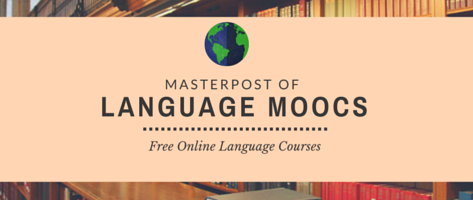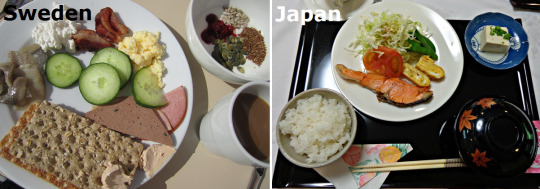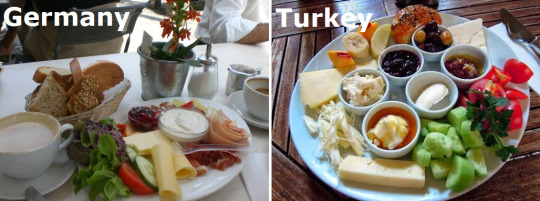Text
thinking again about TvTropes and how it’s genuinely such an amazing resource for learning the mechanics of storytelling, honestly more so than a lot of formally taught literature classes
reasons for this:
basically TvTropes breaks down stories mechanically, using a perspective that’s not…ABOUT mechanics. Another way I like to put it, is that it’s an inductive, instead of deductive, approach to analyzing storytelling.
like in a literature or writing class you’re learning the elements that are part of the basic functioning of a story, so, character, plot, setting, et cetera. You’re learning the things that make a story a story, and why. Like, you learn what setting is, what defines it, and work from there to what makes it effective, and the range of ways it can be effective.
here’s the thing, though: everyone has some intuitive understanding of how stories work. if we didn’t, we couldn’t…understand stories.
TvTropes’s approach is bottom-up instead of top-down: instead of trying to exhaustively explore the broad, general elements of story, it identifies very small, specific elements, and explores the absolute shit out of how they fit, what they do, where they go, how they work.
Every TvTropes article is basically, “Here is a piece of a story that is part of many different stories. You have probably seen it before, but if not, here is a list of stories that use it, where it is, and what it’s doing in those stories. Here are some things it does. Here is why it is functionally different than other, similar story pieces. Here is some background on its origins and how audiences respond to it.”
all of this is BRILLIANT for a lot of reasons. one of the major ones is that the site has long lists of media that utilizes any given trope, ranging from classic literature to cartoons to video games to advertisements. the Iliad and Adventure Time ARE different things, but they are MADE OF the same stuff. And being able to study dozens of examples of a trope in action teaches you to see the common thread in what the trope does and why its specific characteristics let it do that
I love TvTropes because a great, renowned work of literature and a shitty, derivative YA novel will appear on the same list, because they’re Made Of The Same Stuff. And breaking down that mental barrier between them is good on its own for developing a mechanical understanding of storytelling.
But also? I think one of the biggest blessings of TvTropes’s commitment to cataloguing examples of tropes regardless of their “merit” or literary value or whatever…is that we get to see the full range of effectiveness or ineffectiveness of storytelling tools. Like, this is how you see what makes one book good and another book crappy. Tropes are Tools, and when you observe how a master craftsman uses a tool vs. a novice, you can break down not only what the tool is most effective for but how it is best used.
In fact? There are trope pages devoted to what happens when storytelling tools just unilaterally fail. e.g. Narm is when creators intend something to be frightening, but audiences find it hilarious instead.
On that note, TvTropes is also great in that its analysis of stories is very grounded in authors, audiences, and culture; it’s not solely focused on in-story elements. A lot of the trope pages are categories for audience responses to tropes, or for real-world occurrences that affected the storytelling, or just the human failings that creep into storytelling and affect it, like Early Installment Weirdness. There are categories for censorship-driven storytelling decisions. There are “lineages” of tropes that show how storytelling has changed over time, and how audience responses change as culture changes. Tropes like Draco in Leather Pants or Narm are catalogued because the audience reaction to a story is as much a part of that story—the story of that story?—as the “canon.”
like, storytelling is inextricable from context. it’s inextricable from how big the writers’ budget was, and how accepting of homophobia the audience was, and what was acceptable to be shown on film at the time. Tropes beget other tropes, one trope is exchanged for another, they are all linked. A Dead Horse Trope becomes an Undead Horse Trope, and sometimes it was a Dead Unicorn Trope all along. What was this work responding to? And all works are responding to something, whether they know it or not
57K notes
·
View notes
Text
23K notes
·
View notes
Text
The executive orders Biden signed on his first day in office:
1. Requiring masks and physical distancing on federal property
2. Halting the US’s withdrawal from WHO
3. Creating position of Covid-19 Response Coordinator to manage vaccine distribution
4. Extending eviction/foreclosure moratorium till March 31
5. Extending the student loan payment pause till September 30
6. Rejoining Paris Climate Accord
7. Cancelling KeystoneXL and directing agencies to review Trump environmental actions
8. Rescinding Trump’s 1776 Commission which was the thing telling government agencies not to incorporate racial justice into their training
9. Preventing workplace discrimination for LGBTQ+ people
10. Requiring non-citizens to be counted in census and taken into account for congressional rep
11. Fortifying DACA
12. Undoing Trump’s expansion of immigration enforcement
13. Removing Muslim ban
14. Stopping border wall construction
15. Extending deferrals of deportation and work authorizations for Liberians with a safe haven in the US
16. Requiring exec branch employees to sign an ethics pledge
17. Undoing Trump’s regulatory approval process
35K notes
·
View notes
Text
Read Harry Potter with me🧙♂️ (1/?)
Harry Potter and the Sorcerers Stone
제 일 장: 살아남은 아이 || Chapter one: Surviving Child
Paragraph 1
프리벳가 4번지에 살고 있는 더즐리 부부는 자신들이 정상적이라는 것을 아주 자랑스럽게 여기는 사람들이었다. 그들은 기이하거나 신비스런 일과는 전혀 무관해 보였다. 아니, 그런 터무니없는 것은 도저히 참아내지 못했다.
The Dursleys, who live at 4th Privet Street, were people who took great pride in that they were normal. They seemed to have nothing to do with weird or mysterious things. No, they couldn’t stand such an absurd thing.
프리벳가 4번지에 살고 있는 더즐리 부부는 자신들이 정상적이라는 것을 아주 자랑스럽게 여기는 사람들이었다.
프리벳가 4번지에 - 4th pivet street
프리벳 = pivet
~가 subject marker
4번지 = (address number) 4
~에 location marker
살고 있는 - living
살다 = to live
있다 = to be
~ present progressive
더즐리 부부는 - the Dursley’s
더즐리 = Dursley
부부 = (Married) couple
~는 topic marker
자신들이 - themselves
자신 = oneself
~ 들 = multiple
자신들 = themselves
~이 subject marker
정상적이라는 것을 - normal
정상적 = normal
~ (이)라는 called as (The Dursley’s call themselves normal)
~ 는 것 Describing a noun with a verb (Describing The Dursleys with to be normal)
~ 을 object particle
아주 자랑스럽게 - very proud
아주 = very
자랑스럽다 = to be proud
~ 게 adverb suffix
여기는 사람들이었다 - were people
여기 = here
~ 는 topic marker
사람 = person
~ 들 = multiple
사람들 = people
이었다 = were
~ past tense of 있다
그들은 기이하거나 신비스런 일과는 전혀 무관해 보였다.
그들은 - they
그들 = they
~ 은 topic marker
기이하거나 신비스런 - weird or mysterious
기이하다 = to be weird
~거나 [verb] or [verb]
신비스럽다 = to be mysterious
~ verb to noun form
일과는 - routine
일과 = routine
~ 는 topic marker
전혀 무관해 보였다 - seemed to have nothing to do with
전혀 = completely
무관하다 = to have nothing to do with
~ 아/어 보이다 to seem like
~ past tense
아니, 그런 터무니없는 것은 도저히 참아내지 못했다.
아니 - no
아니 = no (informal)
그런 터무니없는 것은 = that absurd thing
그런 = that, that kind of thing
터무니 = outrageous/absurd
없다 = to not exist/none
~ 는 것 Describing a noun with a verb (describing that thing with to be absurd)
도저히 참아내지 못했다. = cannot stand
도저히 - absolutely
참다 = to endure, to stand
~ 아/어 내다 to express results
~ 지 못하다 to not be able to do something
~ past tense
159 notes
·
View notes
Text
2021 language learning goals
This year I want to radically improve some of my languages and I'm going to be setting precise goals every three months.
For Spanish I want to maintain, continue doing some duolingo when I'm bored and more importantly journal and read several novels during the year.
For Korean I want to journal and work on my expression and oral comprehension. I also want to try and read a book.
For Arabic I want to find a new motivation. (I have a student who doesn't speak a lot of French, no English and his native language is Arabic so that is a good motivation)
For Japanese I've been stuck and had many pauses so it's also a matter of motivation.
I also want to dabble in Italian since my boyfriend started learning it and learn signs for FSL
I'll post some journal entries sometimes I think and try to use Instagram as a motivation as well as Tumblr.
2 notes
·
View notes
Text
Hey, what are your favourite books on language and linguistics?
Looking for stuff to add to my tbr pile
102 notes
·
View notes
Text
Hyvää uutta vuotta!
Buorre ođđajagi!
Happy new year!
明けましておめでとうございます!
Gott nytt år!
Gutes neues Jahr!
عام جديد سعيد!
65 notes
·
View notes
Text
Free Online Language Courses

Here is a masterpost of MOOCs (massive open online courses) that are available, archived, or starting soon. I think they will help those that like to learn with a teacher or with videos. You can always check the audit course or no certificate option so that you can learn for free.
American Sign Language
ASL University
Arabic
Arabic for Global Exchange (in the drop down menu)
Arabic Without Walls
Intro to Arabic
Madinah Arabic
Moroccan Arabic
Catalan Sign Language
Intro to Catalan Sign Language
Chinese
Beginner
Basic Chinese
Basic Chinese I. II, III, IV , V
Basic Mandarin Chinese I & II
Beginner’s Chinese
Chinese for Beginners
Chinese Characters
Chinese for HSK 1
First Year Chinese I & II
HSK Level 1
Mandarin Chinese I
Mandarin Chinese for Business
More Chinese for Beginners
Start Talking Mandarin Chinese
UT Gateway to Chinese
Chino Básico (Taught in Spanish)
Intermediate
Chinese Stories
Intermediate Business Chinese
Intermediate Chinese Grammar
Dutch
Introduction to Dutch
English
Online Courses here
Resources Here
Faroese
Faroese Course
Finnish
A Taste of Finnish
Basic Finnish
Finnish for Immigrants
Finnish for Medical Professionals
French
Beginner
AP French Language and Culture
Basic French Skills
Beginner’s French: Food & Drink
Diploma in French
Elementary French I & II
Français Interactif
French in Action
French for Beginners
French Language Studies I, II, III
French:Ouverture
Intermediate & Advanced
French: Le Quatorze Juillet
Passe Partout
La Cité des Sciences et de Industrie
Frisian
Introduction to Frisian (Taught in English)
Introduction to Frisian (Taught in Dutch)
German
Beginner
Beginner’s German: Food & Drink
Conversational German I, II, III, IV
Deutsch im Blick
Diploma in German
Rundblick-Beginner’s German
Advanced
German:Regionen Traditionen und Geschichte
Landschaftliche Vielfalt
Hebrew
Biblical Hebrew
Know the Hebrew Alphabet
Teach Me Hebrew
Hindi
A Door into Hindi
Business Hindi
Virtual Hindi
Icelandic
Icelandic 1-5
Indonesian
Learn Indonesian
Irish
Introduction to Irish
Italian
Beginner
Beginner’s Italian: Food & Drink
Beginner’s Italian I
Introduction to Italian
Italian for Beginners 1 , 2, 3 , 4 , 5, 6
Intermediate & Advaned
Intermediate Italian I
Advanced Italian I
La Commedia di Dante
Japanese
Genki
Japanese JOSHU
Japanese Pronunciation
Sing and Learn Japanese
Tufs JpLang
Kazakh
A1-B2 Kazakh (Taught in Russian)
Korean
Beginner
First Step Korean
How to Study Korean
Learn to Speak Korean
Pathway to Spoken Korean
Intermediate
Intermediate Korean
Nepali
Beginner’s Conversation and Grammar
Norwegian
Introduction to Norwegian
Norwegian on the Web
Portuguese
Curso de Português para Estrangeiros
Pluralidades em Português Brasileiro
Russian
Beginner
Easy Accelerated Learning for Russian
Advanced
Reading Master and Margarita
Russian as an Instrument of Communication
Siberia: Russian for Foreigners
Spanish
Beginner
AP Spanish Language & Culture
Basic Spanish for English Speakers
Beginner’s Spanish:Food & Drink
Fastbreak Spanish
Introduction to Spanish
Restaurants and Dining Out
Spanish for Beginners
Spanish for Beginners 1, 2, 3, 4, 5, 6
Spanish Vocabulary
Intermediate
Spanish:Ciudades con Historia
Spanish:Espacios Públicos
Advanced
Corrección, Estilo y Variaciones
Leer a Macondo
Spanish:Con Mis Propias Manos
Spanish: Perspectivas Porteñas
Swedish
Intro to Swedish
Swedish Made Easy 1, 2, & 3
Ukrainian
Read Ukrainian
Ukrainian Language for Beginners
Welsh
Beginner’s Welsh
Discovering Wales
Multiple Languages
Ancient Languages
More Language Learning Resources & Websites!
Last updated: March 1, 2017
214K notes
·
View notes
Text
Breakfast vocabulary as Gaeilge 🍳
bricfeasta - breakfast
leite - porridge
pancóg - pancake
bocaire - waffle
órshúlach - golden syrup
marmaláid - marmelade
brioscarán - shortbread
arán - bread
ubh scothbhruite - soft-boiled egg
óraiste dearg - blood orange
úlla rósta - baked apples
péitseog - peach
eogart - yoghurt
calóga arbhair - cornflakes
im - butter
bainne - milk
sú - juice
caife - coffee
cupán tae - cup of tea
ithim (verb) - to eat
maidin - morning
go moch ar maidin - early in the morning
85 notes
·
View notes
Text
youtube
youtube
If you haven’t check out Xiran Jay Zhao roasted on Mulan movies, here you go.
(also it’s VERY refreshing to know that the people who worked on the 1998 movie took her criticism so humbly)
193 notes
·
View notes
Text
0 notes
Text
0 notes
Text
0 notes
Text
Different ways to say ‘to change’
There are several words that translate to ‘change’ in Korea, so here are some of the nuances of those words. Some are active (to make something change) and some are passive (to become changed):
바꾸다 = to change, alter, swap something out, e.g. to change one’s plans. To change one’s seat/position = 자리를 바꾸다. “In other words…” = 바꿔 말하면…(basically “If one uses altered words…”)
변하다 - to change into something, to transform, turn into something else, to change state e.g. this town has changed a lot. To change from a caterpillar to a butterfly = 모충에서 나비로 변하다.
변화 - noun form of 변하다 = “a change” e.g. a change in behaviour. A change in the weather = 날씨의 변화.
달라지다 - to shift, vary. The 달라 part means “different”, the -지다 ending means something is “becoming” different. Her mood varies each day = 그녀의 기분은 매일 달라져요.
갈다 - to replace, renew, actively change something. To change a tire = 타이어를 갈다.
갈아입다 - specifically about clothes. To change one’s clothes out of something into something else. The 갈아 part means “to make something change”, the 입다 part means “to wear”. I changed my outfit = 옷을 갈아입었어.
갈아타다 - specifically about transport. To transfer, change vehicle, to get off and board something else. The 타다 part means “to board/ride”. To transfer onto another bus = 다른 버스로 갈아타다.
교환하다 - to trade, exchange, specially about giving and taking something. To exchange (e.g. clothing) for a bigger size = 더 큰 치수로 교환하다.
Some of these seem very similar, but seeing them in contextual sentences will help you become familiar with when/when not to use them.
42 notes
·
View notes











